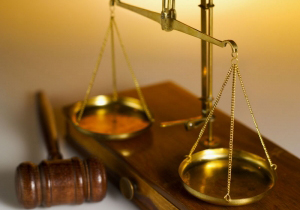US Supreme Court Justice Antonin Scalia’s impartiality in an appeal before the Supreme Court by Vice President Dick Cheney is questioned as the judge and the Vice President took a 3-day hunting trip together.
The Supreme Court is set to hear Mr. Cheney’s appeal relating to his refusal to disclose information of an Energy Task Force he led.
11 February 2004
Honorable William H. Rehnquist
Chief Justice of the Supreme Court of the United States of America
Supreme Court of the United States of America
Washington, DC 20543
USA
The Hon. Chief Justice,
The International Commission of Jurists (ICJ) consists of jurists who represent all the regions and legal systems in the world working to uphold the rule of law and the legal protection of human rights. The ICJ’s Centre for the Independence of Judges and Lawyers is dedicated to promoting the independence of judges and lawyers throughout the world.
We are writing to your Honor to express our deep concern that Justice Antonin Scalia’s impartiality in In re Richard B. Cheney might be reasonably questioned as his recent three-day trip with Vice President Dick Cheney could be seen to amount to more than a routine social event.
As you know, on 5 January Justice Scalia met Vice President Cheney for a three-day hunting trip in a Louisiana camp. The trip took place three weeks after the Supreme Court decided to hear Mr. Cheney’s appeal of an order requiring him to disclose information of an Energy Task Force he led. It has been reported that he and Justice Scalia arrived in a Government-owned plane.
Justice Scalia is reported to have met the Vice President at least once before. In November, when the Supreme Court was still considering whether to accept Mr. Cheney’s appeal, the two had a private dinner with Defense Secretary Donald Rumsfeld.
The right to a fair trial by an independent and impartial tribunal is a fundamental human right. Article 14 of the International Covenant on Civil and Political Rights, to which the United States is a party, states that:
…In the determination of any criminal charge against him, or of his rights and obligations in a suit at law, everyone shall be entitled to a fair and public hearing by a competent, independent and impartial tribunal established by law.
While independence means that decision-makers in a given case are free to decide matters before them without any interference from any branch of Government or elsewhere, impartiality requires judges to be unbiased. In this regard, we would like to draw your attention to the United Nations Basic Principles on Role of Lawyers Principles which were adopted by the U.N. General Assembly in 1990. On the issue of impartiality, the Principles state:
Principle 2. The judiciary shall decide matters before them impartially , on the basis of facts and in accordance with the law, without any restrictions, improper influences, inducements, pressures, threats or interferences, direct or indirect, from any quarter or for any reason.
Furthermore, we would like to draw your attention to the Bangalore Principles of Judicial Conduct, which were adopted by the Round Table Meeting of Chief Justices in 2002 and noted by the UN Commission on Human Rights in resolution 2003/43. The Bangalore Principles further elaborate on the concept of impartiality:
2.2 A judge shall ensure that his or her conduct, both in and out of court, maintains and enhances the confidence of the public, the legal profession and litigants in the impartiality of the judge and of the judiciary.
2.5 A judge shall disqualify himself or herself from participating in any proceedings in which the judge is unable to decide the matter impartially or in which it may appear to a reasonable observer that the judge is unable to decide the matter impartially.
3.2 The behaviour and conduct of a judge must reaffirm the people’s faith in the integrity of the judiciary. Justice must not merely be done but must also be seen to be done.
Thus, impartiality requires the existence of actual impartiality as well as the appearance of impartiality as seen through the eyes of the reasonable observer. In this regard, judges must ensure that their public and private conduct does not cast any doubt on their perceived impartiality.
We respectfully submit that the principle of actual and apparent impartiality of judges is also enshrined in US law. Section 455 of Title 28 of the US Code provides that:
Section 455 Disqualification of justice, judge, or magistrate judge
(a) Any justice, judge, or magistrate judge of the United States shall disqualify himself in any proceeding in which his impartiality might reasonably be questioned.
Although a judge who has socialized with a litigant may not necessarily rule in that litigant’s favor, such socializing, particularly when undertaken over a period of a few days, could be seen to compromise the judge’s appearance of impartiality. Thus, even if Justice Scalia and Mr. Cheney may not have discussed Mr. Cheney’s case during their three-day trip together at the camp, Justice Scalia’s appearance of impartiality in the Vice President’s case might reasonably be questioned.
We therefore respectfully request your Honor to ensure that the above standards on the impartiality of judges are given effect by the Supreme Court of the United States of America.
Please receive the assurances of my highest consideration.
Sincerely,
Acting Secretary-General
Cc:
H.E. Ambassador
United States Permanent Mission to the UN
Route de Pregny 11
1292 Chambésy
Switzerland
Attorney General
U.S. Department of Justice
950 Pennsylvania Avenue, NW
Washington, DC 20530-0001
USA
Office of the Solicitor General
950 Pennsylvania Ave., NW
Washington, D.C. 20530-0001
USA
United States-impartiality Scalia-open letter-2004 (text, PDF)




